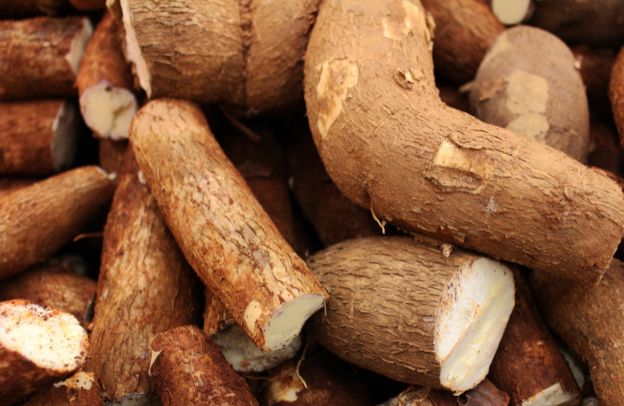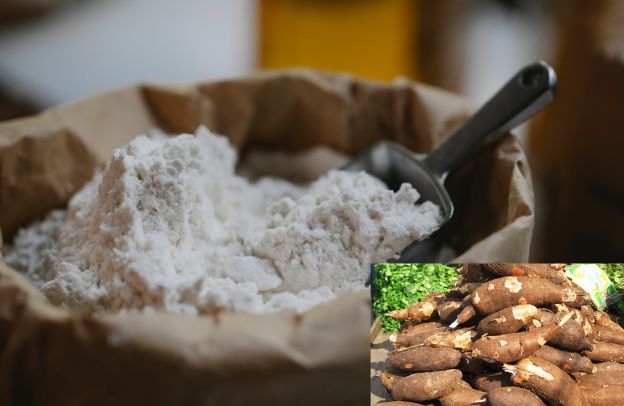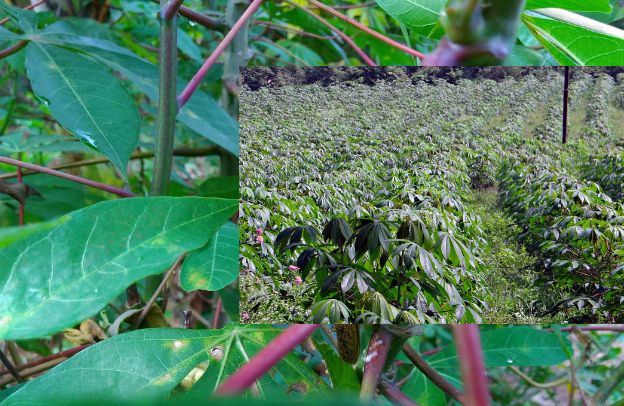What Are The Key Nutritional Benefits Of Cassava?

Cassava, a versatile and resilient root vegetable, thrives in diverse climates and provides a vital food source for over 800 million people worldwide. From being boiled, dried, or ground into flour, to being converted into sugar or alcohol, cassava offers countless uses. Not only does it support global food security, but it also holds significant health benefits, making it a promising solution for improving nutrition and potentially saving the environment.
Learn How to Leverage Your Story through our Story To Asset Transformation (S.A.T) Framework.
Nutritional Profile of Cassava
According to Nutrition and You, a 100-gram serving of raw cassava provides approximately 160 calories, primarily from carbohydrates. This serving size contains about 38 grams of carbohydrates, 1.8 grams of dietary fiber, 1.36 grams of protein, and 0.28 grams of fat.
Cassava is also a rich source of essential vitamins and minerals, including vitamin C (20.6 mg), thiamine (0.087 mg), riboflavin (0.048 mg), niacin (0.854 mg), vitamin B6 (0.088 mg), folate (27 µg), calcium (16 mg), magnesium (21 mg), phosphorus (27 mg), potassium (271 mg), and iron (0.27 mg).
Health Benefits of Cassava
Cassava (Manihot esculenta) stands as a cornerstone in the diets of over 800 million people worldwide, particularly in tropical and subtropical regions. Renowned for its adaptability and resilience, this root vegetable is not only a dietary staple but also a vital source of energy.
Its high carbohydrate content, approximately 38-40 grams per 100-gram serving, provides a substantial caloric intake, making it indispensable in areas where food security is a pressing concern.
The complex carbohydrates in cassava are digested slowly, offering a sustained energy release that benefits individuals engaged in prolonged physical activities.
Moreover, cassava contains resistant starch, a type of carbohydrate that functions similarly to dietary fiber, supporting gut health and blood sugar management.
See also: The 5 Healthy Benefits Of Cassava Consumption
Energy Production
Cassava’s high carbohydrate content makes it an excellent energy source, especially in regions where food security is a concern. The complex carbohydrates in cassava are digested slowly, providing a sustained energy release, which is beneficial for individuals engaged in prolonged physical activities.
Digestive Health
The dietary fiber in cassava aids in promoting healthy digestion. Regular consumption can help prevent constipation and support a healthy gut microbiome by acting as a prebiotic, fostering the growth of beneficial bacteria.
According to Healthline, cassava is a nutrient-dense root that offers a range of health benefits. A 3.5-ounce (100-gram) serving of cooked cassava contains approximately 191 calories. Of these, about 84% come from carbohydrates, with the remainder derived from protein and fat.
This serving size also provides a modest amount of fiber, along with several essential vitamins and minerals. Now, here’s a breakdown of the key nutrients in 3.5 ounces (100 grams) of cooked cassava according to the Healthline Publication:
- Calories: 191
- Protein: 1.5 grams
- Fat: 3 grams
- Carbohydrates: 40 grams
- Fiber: 2 grams
- Vitamin C: 20% of the Daily Value (DV)
- Copper: 12% of the DV
- Thiamine: 7% of the DV
- Folate: 6% of the DV
- Vitamin B6: 6% of the DV
- Potassium: 6% of the DV
- Magnesium: 5% of the DV
- Niacin: 5% of the DV
Notably, cassava is an excellent source of vitamin C, an essential nutrient that acts as a powerful antioxidant. Vitamin C also supports collagen production, boosts immune function, and offers numerous other health benefits.
Immune System Support
Vitamin C is a potent antioxidant that plays a crucial role in enhancing immune function. A 100-gram serving of cassava provides about 34% of the recommended daily intake of vitamin C, aiding in the protection against infections and the maintenance of healthy skin.
Bone Health
Cassava contains essential minerals like calcium, magnesium, and phosphorus, which are vital for maintaining strong and healthy bones. Regular intake of these minerals can help in preventing osteoporosis and other bone-related disorders.
Blood Pressure Regulation
With 271 mg of potassium per 100 grams, cassava contributes to the maintenance of normal blood pressure levels. Potassium helps in balancing sodium levels in the body, thus aiding in the prevention of hypertension.
“Cassava is loaded with dietary fiber. Consuming this fiber is linked to a number of health benefits, including lower blood pressure, reduced cholesterol levels, better control over your blood sugar levels and a lower risk of obesity,” said the article, The Health Benefits of Eating Cassava Root.
See also The Health Benefits of Cassava: Why You Should Incorporate It Into Your Diet
Antioxidant Properties
Cassava leaves are rich in polyphenols and vitamin C, both of which have antioxidant properties. These compounds help in neutralizing free radicals, reducing oxidative stress, and potentially lowering the risk of chronic diseases.
Skin Health
The vitamin C content in cassava supports collagen production, essential for maintaining skin elasticity and preventing signs of aging. Additionally, traditional practices involve using cassava paste as a natural remedy for skin irritations and wounds.
Weight Management
While cassava is calorie-dense, its high fiber content can promote a feeling of fullness, potentially aiding in weight management by reducing overall calorie intake. However, portion control is essential due to its high carbohydrate content.
Supports Metabolic Functions
B-vitamins present in cassava, such as thiamine, riboflavin, niacin, and vitamin B6, play a pivotal role in metabolic processes, including energy production and the synthesis of neurotransmitters.
From a publication by the National Institutes of Health (NIH), you will read that Cassava plays a vital role in supporting metabolic functions by serving as a staple food for over 800 million people, especially in nutrient-depleted soils.
Despite significant research efforts, its metabolic composition across different tissues remains underexplored. Recent studies have utilized advanced analytical techniques to quantify a wide range of metabolites in cassava, including sugars, organic acids, amino acids, minerals, starch, carotenoids, chlorophylls, tocopherols, and proteins.
These analyses are performed using both targeted and non-targeted metabolomics approaches, with methods tailored for freeze-dried materials to facilitate the transportation of field harvest samples. This comprehensive metabolic profiling helps better understand cassava’s contribution to human nutrition and its metabolic function.
Potential Anti-inflammatory Effects
Some studies suggest that the polyphenolic compounds in cassava leaves may exhibit anti-inflammatory properties, which could be beneficial in managing inflammatory conditions.
See also: Cassava Processing What Are The Techniques And Methods
Culinary Uses of Cassava
Cassava, a starchy root native to South America, has become a culinary cornerstone in various global cuisines due to its versatility and adaptability. Beyond its nutritional benefits, cassava offers a wide array of culinary applications, making it a staple in many households.
Traditional Preparations
In many cultures, cassava is prepared similarly to potatoes. It can be boiled, baked, fried, or mashed, serving as a hearty side dish or a base for main courses.
For instance, in West African cuisine, boiled cassava is often paired with spicy stews, while in Latin American countries, fried cassava, known as “yuca frita,” is a popular snack. Its neutral flavor allows it to absorb various seasonings, making it adaptable to numerous recipes.
Cassava Flour in Gluten-Free Baking
One of the most significant contributions of cassava to modern diets is its transformation into flour. Cassava flour is made by peeling, drying, and grinding the whole root, resulting in a fine, powdery substance. This flour is naturally gluten-free, grain-free, and nut-free, making it an excellent alternative for those with dietary restrictions.
Its texture and mild flavor closely resemble that of wheat flour, allowing for a seamless substitution in many recipes. Bakers have successfully used cassava flour to create bread, cakes, cookies, and pastries that cater to gluten-free diets without compromising taste or texture.
However, it’s essential to note that cassava flour absorbs more liquid than wheat flour, so recipe adjustments may be necessary to achieve the desired consistency. citeturn0search1
Tapioca and Other Derivatives
Cassava is also processed into tapioca, a starch extracted from the root. Tapioca pearls are widely used in desserts like puddings and bubble tea, offering a chewy texture that enhances these treats.
See also Nigerian Cassava Production: How to Transform a Staple Crop into Africa’s Economic Powerhouse
Additionally, tapioca starch serves as an effective thickening agent in soups, sauces, and gravies, providing a glossy finish without altering the dish’s flavor. Its neutral taste and strong gelling properties make it a valuable ingredient in both sweet and savory culinary applications.
Cultural Staples
In various regions, cassava is integral to traditional dishes. For example, “garri” in West Africa is made by fermenting and roasting grated cassava, resulting in granules that are rehydrated and consumed as a staple food.
Similarly, “farofa” in Brazil consists of toasted cassava flour, often seasoned and served alongside meats. These dishes not only highlight cassava’s versatility but also its cultural significance in connecting communities through shared culinary heritage.
Modern Innovations
The culinary uses of cassava continue to evolve. Chefs and home cooks alike experiment with cassava-based recipes, creating innovative dishes that cater to contemporary tastes and dietary needs. From cassava chips as a healthier snack alternative to cassava-based pasta for gluten-free diets, the possibilities are expanding.
Its adaptability makes cassava a valuable ingredient in both traditional and modern kitchens, bridging the gap between heritage and innovation.
In summary, cassava’s culinary versatility spans from traditional preparations to modern dietary applications. Its ability to be transformed into various forms, such as flour and tapioca, coupled with its neutral flavor profile, ensures its continued prominence in kitchens worldwide.
Precautions and Considerations
While cassava offers numerous health benefits, it is essential to prepare it correctly. According to Medical News Today raw cassava contains cyanogenic glycosides, which can release cyanide and are toxic if consumed improperly.
Proper peeling, soaking, and thorough cooking are necessary to reduce these compounds to safe levels. Individuals relying heavily on cassava as a dietary staple should ensure a balanced diet to prevent potential nutrient deficiencies.
See also: Cassava Leaves: A Delicious and Nutritious Addition to Your diet
Conclusion
Cassava stands out as a vital food source with a rich nutritional profile and numerous health benefits. Its role in energy production, digestive health, immune support, and more underscores its importance in the diets of many cultures. As with any food, proper preparation and mindful consumption are key to harnessing its full potential while ensuring safety.
Learn How to Leverage Your Story through our Story To Asset Transformation (S.A.T) Framework.





